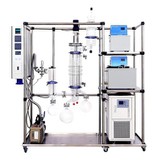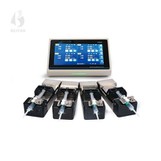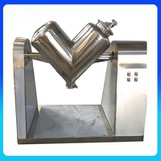Hey there! As a supplier of tension testers, I've seen firsthand just how versatile these nifty devices can be. In this blog post, I'm gonna take you through some of the most common applications of a tension tester. Whether you're in manufacturing, research, or any other field that deals with materials and forces, you'll find these insights pretty useful.
1. Manufacturing Industry
In the manufacturing world, quality control is king. Tension testers play a crucial role in ensuring that products meet the required standards. For example, in the production of cables and wires, a tension tester can be used to determine the maximum amount of tension the cable can withstand before breaking. This is super important because cables that are used in high - stress environments, like in elevators or bridges, need to be extremely reliable.
Let's say you're making a steel cable for a suspension bridge. You can use a tension tester to apply a gradually increasing force to a sample of the cable until it fails. By analyzing the results, you can make sure that the cable has the right strength and durability. This not only helps in maintaining the safety of the end - product but also reduces the risk of costly recalls.
Another area in manufacturing where tension testers are widely used is in the production of textiles. Fabrics need to have a certain level of tensile strength to be suitable for different applications. For instance, a fabric used for making sails on a boat needs to be able to withstand strong winds without tearing. A tension tester can measure the force required to stretch and break a fabric sample, allowing manufacturers to select the right materials and ensure consistent quality.
2. Automotive Industry
The automotive industry is all about performance and safety. Tension testers are used in various aspects of car manufacturing. One of the key applications is in testing the seat belts. Seat belts are designed to restrain passengers in the event of a collision, so they need to be able to withstand a significant amount of force.
A tension tester can simulate the forces that a seat belt would experience during a crash. By applying a sudden and high - magnitude force to the seat belt, manufacturers can determine if it meets the safety standards. This helps in preventing injuries and saving lives.
Tension testers are also used in testing the engine components. For example, the timing belts in an engine need to have the right tension to ensure proper operation. If the tension is too loose, the belt may slip, causing the engine to misfire. On the other hand, if the tension is too tight, it can lead to premature wear and tear. A tension tester can accurately measure the tension of the timing belt and help mechanics adjust it to the optimal level.
3. Aerospace Industry
In the aerospace industry, safety and reliability are of utmost importance. Tension testers are used extensively in the testing of aircraft components. For example, the cables and wires used in an aircraft need to be able to withstand extreme conditions, such as high altitudes, temperature variations, and vibrations.
A tension tester can be used to test the tensile strength of these cables and wires under different environmental conditions. This ensures that they can perform reliably throughout the aircraft's lifespan. Additionally, tension testers are used in testing the fasteners and connectors in an aircraft. These components need to be able to hold the various parts of the aircraft together securely, and a tension tester can verify their strength.
4. Medical Industry
The medical industry also benefits from the use of tension testers. In the production of medical devices, such as sutures and catheters, it's essential to ensure that they have the right mechanical properties. Sutures need to be strong enough to hold tissues together during the healing process, but not so strong that they cause excessive damage to the surrounding tissues.
A tension tester can measure the tensile strength of sutures and help manufacturers optimize their design. Similarly, catheters need to have a certain level of flexibility and strength to be inserted into the body without breaking. A tension tester can be used to test the catheters under different conditions to ensure their quality and safety. And if you're also interested in other medical - related laboratory instruments, you might want to check out the Automatic Syringe Pump.


5. Research and Development
In the field of research and development, tension testers are invaluable tools. Scientists and engineers use them to study the mechanical properties of new materials. For example, if a researcher is developing a new type of composite material, a tension tester can be used to measure its tensile strength, modulus of elasticity, and other important parameters.
By understanding the behavior of materials under tension, researchers can develop new and improved products. This could lead to advancements in various industries, such as aerospace, automotive, and construction. Tension testers also allow for the comparison of different materials, helping researchers select the most suitable ones for specific applications.
6. Food and Beverage Industry
You might be surprised to learn that tension testers are also used in the food and beverage industry. In the production of packaging materials, such as plastic films and paperboard, it's important to ensure that they can withstand the stress of handling and transportation.
A tension tester can measure the force required to tear or puncture the packaging materials. This helps in selecting the right materials and designing packaging that can protect the food and beverages inside. For example, a packaging for a bag of chips needs to be strong enough to prevent it from being damaged during shipping, but also easy enough to open for the consumer.
7. Environmental and Waste Management
In environmental and waste management, tension testers can be used to test the strength of materials used in landfills and waste treatment facilities. For example, the liners used in landfills need to be able to withstand the weight of the waste and prevent the leakage of contaminants into the soil and groundwater.
A tension tester can measure the tensile strength of the liner materials to ensure that they are suitable for the harsh environmental conditions. Additionally, in waste treatment processes, such as recycling, tension testers can be used to test the strength of the recycled materials. This helps in determining the quality of the recycled products and ensuring that they can be used in various applications.
If you're also involved in drying or separation processes, you might find the 3L Laboratory Small Spray Dryer and Propylene Oxide Solvent Recovery Machine interesting.
As you can see, tension testers have a wide range of applications across different industries. If you're in need of a reliable tension tester for your business, don't hesitate to reach out. We offer high - quality tension testers that are designed to meet the diverse needs of our customers. Whether you're a small - scale manufacturer or a large - scale research institution, we can provide you with the right solution. Contact us today to start a discussion about your requirements and let's work together to find the perfect tension tester for you.
References
- ASTM International. (2023). Standard test methods for tension testing of metallic materials.
- ISO. (2023). International standards for testing the tensile properties of plastics.
- SAE International. (2023). Automotive standards related to seat belt testing.




